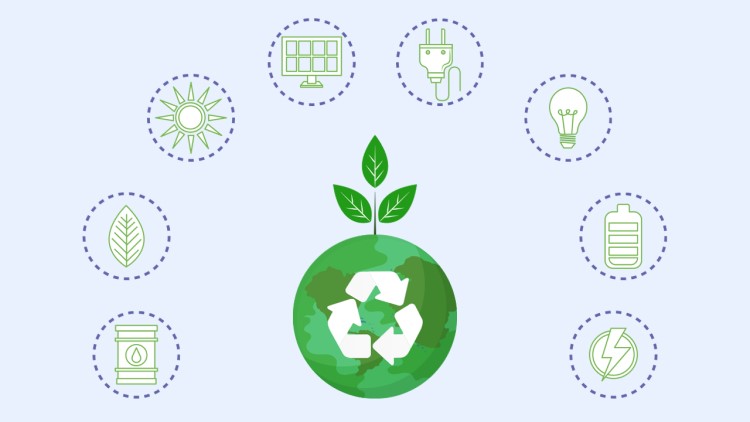
The demand for businesses to operate sustainably has never been more pressing. Sustainable business practices are transforming industries by integrating environmental stewardship, social responsibility, as well as economic viability into the core of business strategies. This shift not only addresses critical global challenges but also offers substantial benefits to businesses themselves. This drives innovation, improving efficiency, and also enhancing corporate reputations.
The Essence of Sustainable Business Practices
Sustainable business practices involve making business decisions that are not only based on financial factors but also consider both environmental and social impacts. These practices are comprehensive. They encompass everything from how resources are sourced and used, to how employees are treated. They also take into consideration how products are designed and disposed of after use. By adopting such practices, businesses can contribute to a more sustainable world. Doing so shouldn’t stop them from positioning themselves as leaders in a rapidly evolving marketplace.
The Business Benefits of Sustainability
The integration of sustainable business practices offers several tangible benefits. These benefits can enhance the operational and financial health of a company:
Cost Reduction through Efficiency
Sustainability initiatives often lead to significant cost savings by improving resource efficiency and reducing waste. Energy-efficient technologies and sustainable waste management systems can decrease operational costs, offering a clear financial return on investment.
Strengthened Brand and Increased Competitive Advantage
Companies that are known for their commitment to sustainability often enjoy a stronger brand reputation, which can translate into increased customer loyalty and a larger customer base. In today’s market, a reputation for sustainability can be a significant differentiator, attracting consumers who are increasingly making purchasing decisions based on corporate social responsibility.
Attraction and Retention of Employees
A commitment to sustainable practices can make a company more attractive to potential employees, particularly millennials and Gen Z workers who prefer to work for companies that reflect their values. Moreover, companies that prioritize employee well-being and environmental responsibility tend to have higher levels of employee satisfaction and lower turnover rates.
Compliance and Risk Management
Sustainable business practices help companies comply with increasingly stringent environmental laws and regulations, reducing legal risks and associated costs. Moreover, companies that are proactive in their sustainability efforts are better positioned to adapt to future regulations.
Implementing Sustainable Business Practices
Energy and Resource Management
One of the first areas that companies often address is the efficiency of their energy and resource use. This can include upgrading to energy-efficient lighting and machinery, implementing strict recycling programs, or using more sustainable materials in manufacturing processes. Renewable energy sources like solar and wind can also significantly reduce a company’s carbon footprint and energy costs.
Waste Reduction
Minimizing waste not only helps the environment but also reduces expenses. Practices such as improving product design to use less material, optimizing manufacturing processes to generate less waste, and implementing comprehensive recycling programs can dramatically decrease the amount of waste a company produces.
Sustainable Supply Chains
Developing a sustainable supply chain is crucial for reducing a company’s overall environmental impact. This involves selecting suppliers based on their environmental performance, encouraging suppliers to adopt green practices, and choosing locally sourced materials to reduce transportation emissions.
Community and Employee Engagement
Engaging with the community and employees about sustainability goals and practices helps to build a culture of sustainability within the company. This can include volunteer programs, sustainability training sessions, and initiatives that encourage employees to contribute their own ideas for sustainability improvements.
Challenges in Adopting Sustainable Practices
While the benefits are compelling, integrating sustainable practices can be challenging, particularly for small and medium-sized enterprises:
Cost of Implementation: Although sustainable practices often lead to cost savings over time, the initial investment can be significant.
Cultural Resistance: Changing established procedures and practices can meet resistance from within the organization.
Knowledge and Resource Gaps: Some companies may lack the knowledge or resources necessary to implement effective sustainability programs.
Solutions and Strategies for Effective Implementation
Gradual Implementation: Start with small, manageable sustainability projects that require minimal upfront investment.
Leverage Technology: Use technology to track sustainability metrics and implement efficient processes.
Partnerships: Collaborate with environmental organizations or other companies to share resources and knowledge.
Conclusion: The Strategic Imperative of Sustainable Business Practices
As the business world evolves, sustainable practices are becoming not just beneficial but essential for long-term success. By adopting and continually improving sustainable business practices, companies can not only contribute positively to the world but also build a stronger, more resilient, and more competitive business. These practices are not just about being good corporate citizens—they are about ensuring profitability and sustainability in an ever-changing global landscape.

